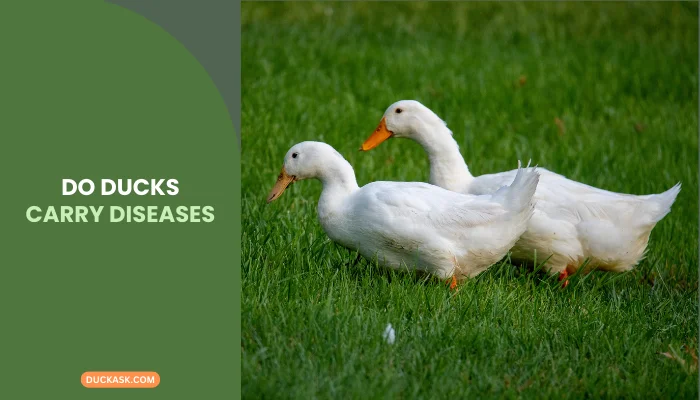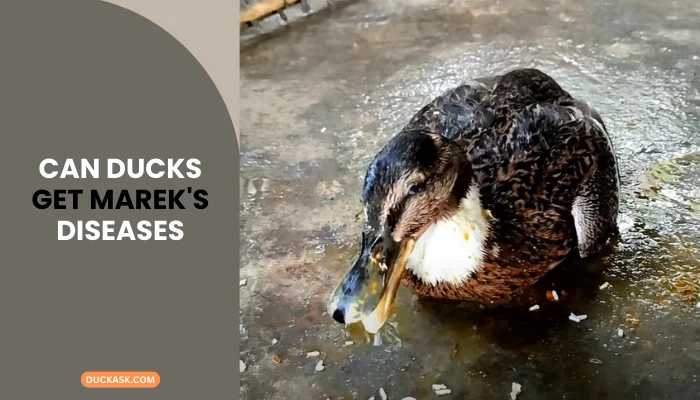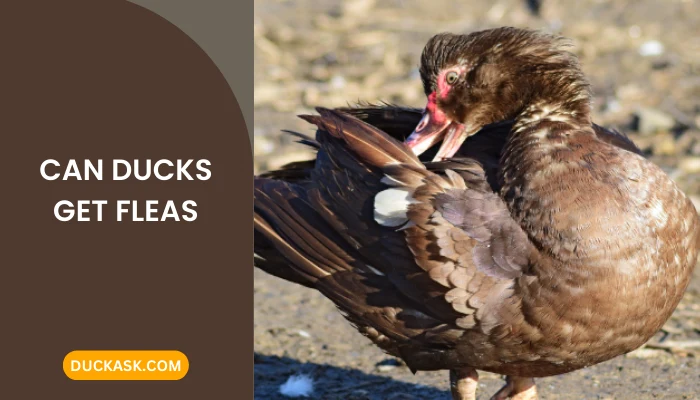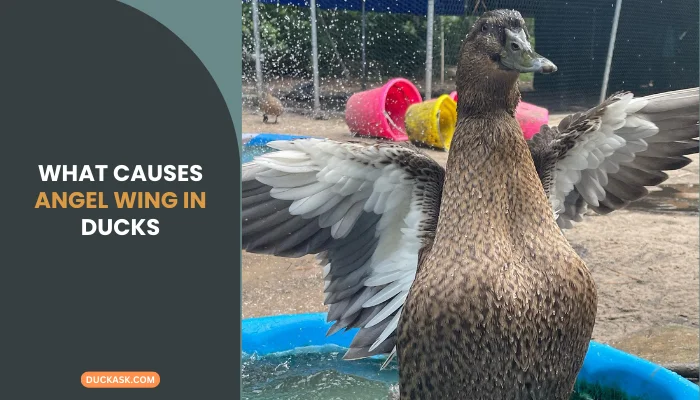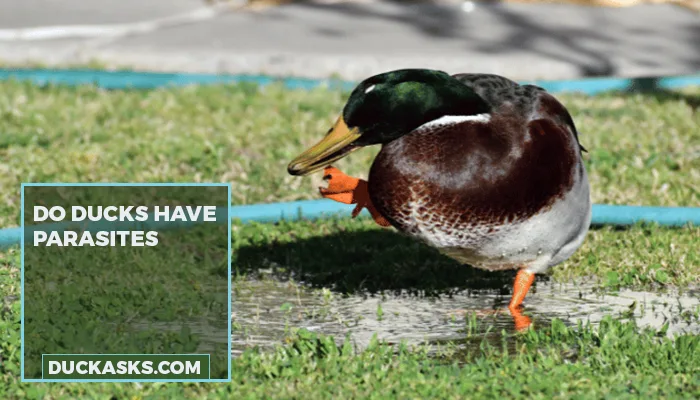Does Duck Have Salmonella?
Salmonella is a bacteria that causes an infectious illness in humans and a broad range of animals. But the most familiar “Salmonella territory “would be backyard pet birds. Now, you might already be wondering, ‘Does duck have Salmonella, too?’.
Yes, ducks also have Salmonella. They carry this germ even while they look absolutely clean and healthy. This bacteria in them will likely spread around the area where ducks live or hover around. And it can be quite a threat to ducks and humans too!
So, this blog will break down every significant factor regarding ducks having Salmonella. Therefore, don’t skip any of the sections!
Looking for more articles about duck diseases:
How Do Ducks Come in Contact with Salmonella?
Salmonella is indeed a matter of stress in the case of your pet ducks. But if you plan on preventing it, you must go through the roots first of how this bacteria comes in contact with your ducks.
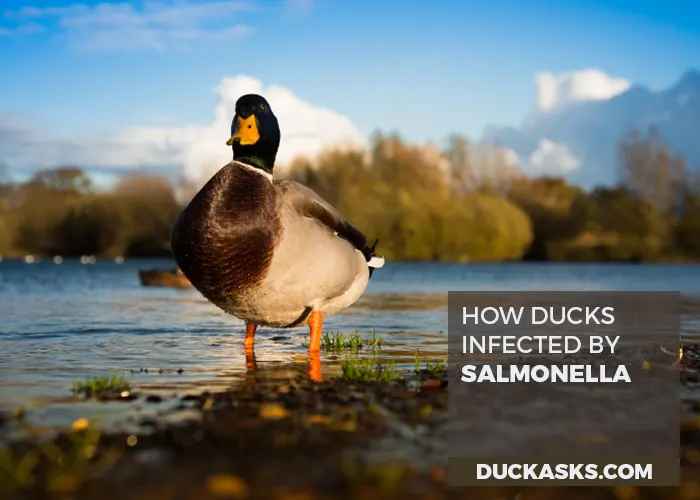
Filthy or Contaminated Feeders
Exposure to air, soil, or water causes the feeder to come in contact with Salmonella or other bacteria. Therefore, when you serve these to your ducks, the bacteria transfer to them!
Infected Wild Birds
Wild birds pick up food randomly and live in filthy areas. So, they quickly become victims of Salmonella. However, when these birds come near your pet ducks, they’re also deadlocked to Salmonella.
What Are the Symptoms of Salmonella in Ducks?
Unfortunately, Salmonella barely shows any specific symptoms in ducks. Unlike humans, they don’t suffer from high fever, stomach upsets, or other chronic diseases due to this bacteria either.
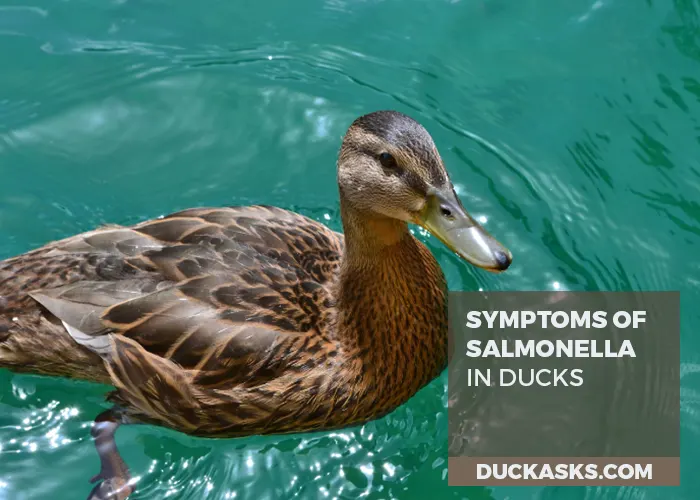
However, the worst Salmonella can do – is make your ducks suffer Diarrhoea. It’s more of a common symptom in ducks and other pet birds that get infected with this bacteria.
Here are some of the apparent symptoms that can show up due to Salmonella:
- Your duck’s lack of appetite
- Lack of thirst thus causes dehydration
- Decreased dejection
- Reduction in egg production
- Swollen joints and eyes
- Weaknesses
- Messy feathers (as weakness doesn’t let them groom themselves)
- Stuck growth
- Blindness
What Are the Treatments for Your Salmonella-Infected Duck?
Although Salmonella may sound extremely severe, there are ways to treat this. Here’s how it can be done.
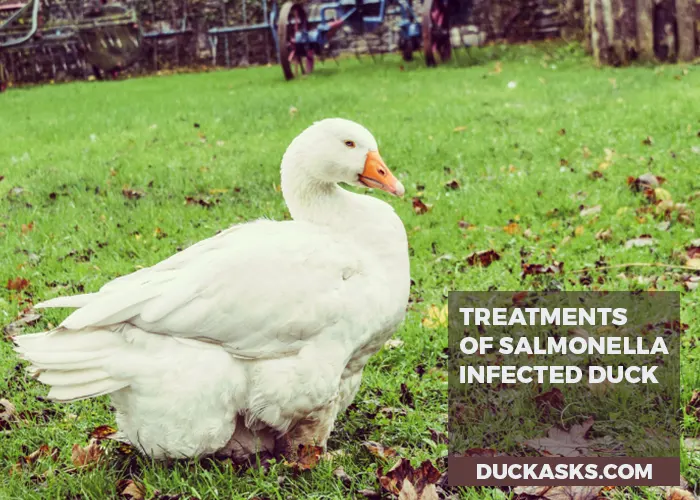
Separate the Infected Duck from the Flock
Depending on the symptoms mentioned above, diagnose the infected duck and separate it from the flock. Now find a safe place for it where it can rest in comfort. It has to be in a warm location with sufficient food and water.
Antibiotics
The right antibiotics can actually help your ducks to get cured. However, only a veterinarian can help you with this. So, make sure to consult with them first.
Probiotics
Any oral supplement will work. It’s safer to go with yogurt. This is because such probiotics can aid the ducks with better digestive systems and also improve the immunity system.
Note: Salmonellosis (the disease caused by Salmonella) will likely resolve with any medicine or treatment after 5-7 days. But in the case of severe damage or if the infection spreads, you’ll need to ensure the treatments.
How Humans Get Salmonella from Ducks?
Humans can even get this bacteria by touching infected ducks. Salmonella spreads around the environment very quickly.
If this somehow enters your mouth, you’ll be going through several health issues like fever, stomach upsets, allergic reactions, diarrhea, etc.

So, you must be super careful while dealing with the infected ducks. Here are some of the tips you can take on count to prevent getting Salmonella:
Washing Your Hands Thoroughly After Touching the Ducks
Whether your ducks are infected or not, never skip washing your hands with soap and water after touching them. If you don’t have soap near you, you can also go with sanitizers or alcohol-based cleaning products. Whatever method you choose, cleaning your hands is a must!
Keep Your Under-Aged Children Away from Ducks
Ducks undoubtedly are extraordinary and fun pets. But it’s not wise to keep them around your children under five years old. This is because children have a comparatively weak immune system and can easily be affected by this bacteria.
Your kids may even mistakenly consume forbidden duck stuff when you aren’t around.
Keep Your Poultry at a Considerable Distance
Make sure the area you choose for poultry is far enough from where you live. Use alcohol-based cleaning sprays to keep the area where you keep feeders or cages clean and safe.
Frequently Asked Questions
01. Do all ducks have Salmonella?
Yes, almost all duck feces have Salmonella living in their intestine. By offering proper treatment, you can prevent it temporarily. But there’s no certified way to prevent Salmonella permanently.
02. Do ducks always carry Salmonella?
It’s safe to say that ducks carry Salmonella most of the time. This bacteria spreads very quickly around poultry areas.
03. Are duck eggs more likely to have Salmonella?
Yes, duck eggs are likely to have more Salmonella than hens’ eggs since hens are good at preventing this bacteria naturally. So, you need to be extra careful while boiling duck eggs.
Wrapping Up!
Ducks are the ideal bird pets to have around your house. However, diseases like Salmonella can become pretty common then! So, keeping your poultry clean and taking proper measurements to prevent this bacteria from spreading is always recommended.
We believe you now have all the facts regarding Salmonella and ducks! So, do consider sharing this content and connecting with us through Facebook, Twitter, and Pinterest for more interesting facts.
Article Reference URL:
- https://pubmed.ncbi.nlm.nih.gov/31013442/
Image Credit:
- Canva.com/photos


